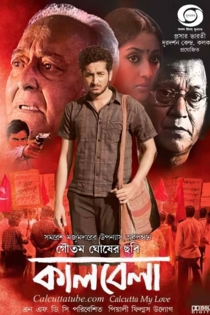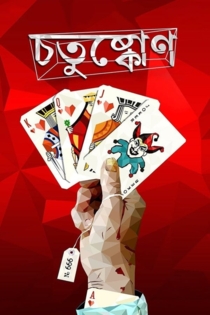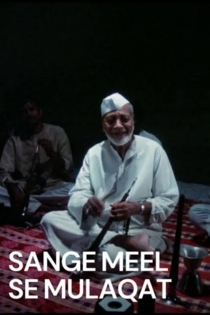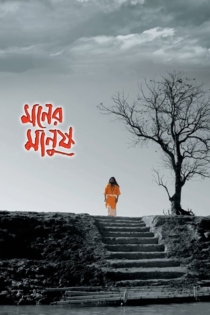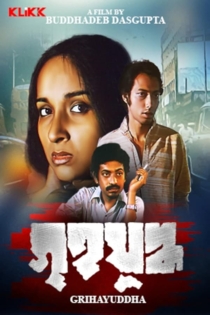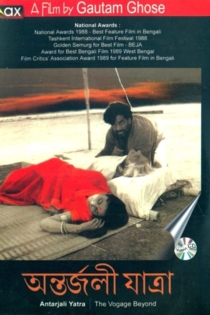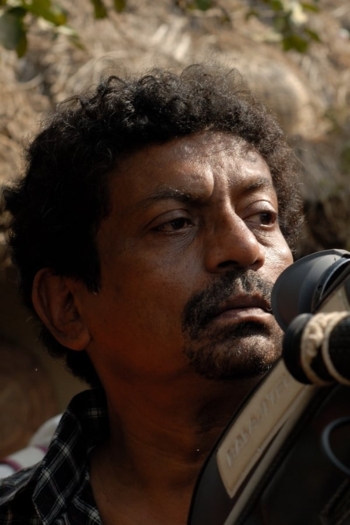
Goutam Ghose
1950 (75 лет)మా భూమి
Goutam Ghose
Kakarala, Sai Chand
Set during one of India’s main peasant risings, the Telangana insurrection between 1945 and 1951 in the pre-Independence state of Hyderabad, the Bengali director’s first feature tells the story of Chander’s best-known novel (Jab Khet Jaage (1948)) from the peasant’s point of view. A young peasant, Ramiah, rebels against the corrupt rule of the nizam, and when his girlfriend has to submit to the potentate’s sexual coercion, Ramiah leaves. He befriends a Marxist activist (the rising was CPI-inspired) and participates in the Independence struggle.
Our Land
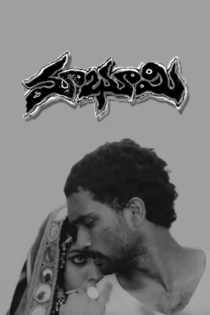
পদ্মা নদীর মাঝি
Goutam Ghose
Raisul Islam Asad, Roopa Ganguly
Based on the timeless literary work by Manik Bandyopadhyay, Padma Nadir Majhi was directed by Gautam Ghosh. The movie illustrates the tumultuous lives of the fishermen and their families, living by the river Padma. Beautiful shots of the river, Ghosh's flair for realism and brilliant display of acting skills by noted actors of Bangladesh and West Bengal, including Utpal Dutt, Robi Ghosh, Abul Khayer, Raisul Islam Asad, Champa, and Rupa Ganguli, fetched the movie local and international honours.
The Padma Boatman
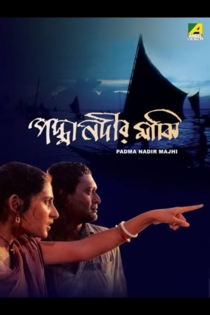
২২শে শ্রাবণ
Srijit Mukherji
Prosenjit Chatterjee, Parambrata Chatterjee
Several murders have taken place through out the city of Kolkata. A Serial killer is believed to be responsible. The mods operandi being that the killer always caries out the murder according to verses in Bengali poetry. He leaves behind the verses next to the victim. The police are baffled. There lead detective struggles to solve the case. This leads to his superiors deciding to bring back an ex-cop to help solve the case. The ex-cop was suspended for orchestrating a fake encounter and is well known for his bad temperament. Now the ex-cop and the lead detective must work together to catch the serial killer before another innocent loses his life.
Baishe Srabon
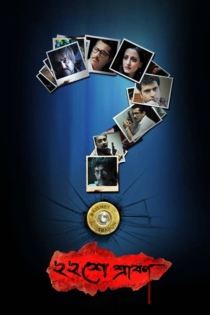
The Wayfarers
Goutam Ghose
Adil Hussain, Tillotama Shome
It is a story of two strangers, perpetually on the fringes of survival. They share a journey and meet a third person carrying an ailing old couple in his vehicle. Endangering their own survival, the three fight it out to save precious human lives.
The Wayfarers
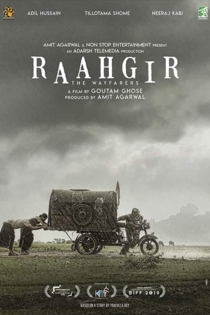
Paar
Goutam Ghose
Naseeruddin Shah, Shabana Azmi
When a Dalit wins the elections for mayor in his small village in northeastern India, deadly rioting forces an impoverished couple to escape to Calcutta where they can hopefully find work. Instead, they end up sleeping on the streets until they have a chance at earning a little income -- a man has asked them to take his herd of pigs across a fast-moving river. The current is dangerous, and worse, the wife is pregnant and this would not be an easy task even if she were not. Undaunted and desperate, the couple accept the job and enter the river to face their destiny.
The Crossing
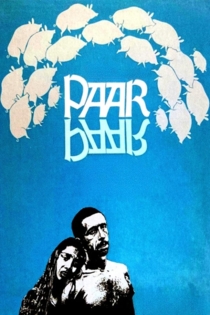
Patang
Goutam Ghose
Shabana Azmi, Shafiq Syed
Patang (English: The Kite) is a 1993 Indian Hindi drama film directed by Goutam Ghose, starring Shabana Azmi, Shafiq Syed, Om Puri and Robi Ghosh. The film is set in small railway station near Gaya, and the life of people in illegal slums near it.[1][2] The film was shot in Gaya and Manpur in Bihar.
Patang

শঙ্খচিল
Goutam Ghose
Shajbati, Kusum Sikder
Free as a bird. To wander. To nestle. To take flight. We are not. As India gained its much awaited independence in 1947, a race faced another struggle. Bengal was divided and hundreds of thousands of Bengalis were displaced and divided on the basis of their religion. The Hindus were forced out as East Bengal was made a part of Pakistan and the same fate lay in store for the Muslims of West Bengal. Millions became refugees in their own homeland, and thousands still bear the cross and the scar. The film is a human saga of a truncated land and how people are trying to relive their destiny.
Shankhachil
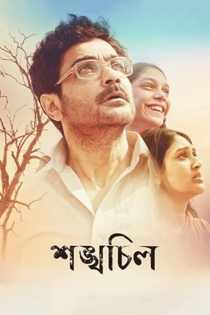
Dekha
Goutam Ghose
Soumitra Chatterjee, Indrani Halder
A journey through the life of an aged Bengali poet, Shashibhushan. Shashbhushan, now blind, reflects on his past. Stimulated by sounds - songs, crows, traffic, and an electronic lighter - he recalls the now-vanished arts and literature scene of post independence Calcutta. The old man lives in a crumbling aristocratic mansion in the heart of town, which he shares with his teacher's daughter, Sarama, and her young son Shumon. During a vacation in the country another man enters their lives. Gangan was born blind and is a talented singer. Gangan and Sarama engage in a secret affair as Shashibhushan recalls his own wife, who he lost because of his uncontrollable sexual appetite.
Dekha
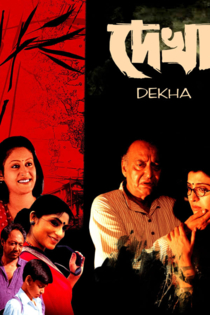
Kaalbela
Goutam Ghose
Papri Ghosh, Parambrata Chatterjee
Animesh Mitra is simpleton who arrives at Calcutta from Jalpaiguri, during hostile times (1967), to study at the Scottish Church College. He is scheduled to take refuge at the residence of his father’s friend Mr. Debabrata, but he accidentally gets shot in the limb and ends up at the Calcutta Medical College. Eventually things move on and Animesh develops a deep friendship with Debabrata’s daughter Neela. He takes admission in the B.A classes of Scottish Church College on Bengali Literature and ultimately becomes intertwined with the unresting times of the youth intellect.
Kaalbela
